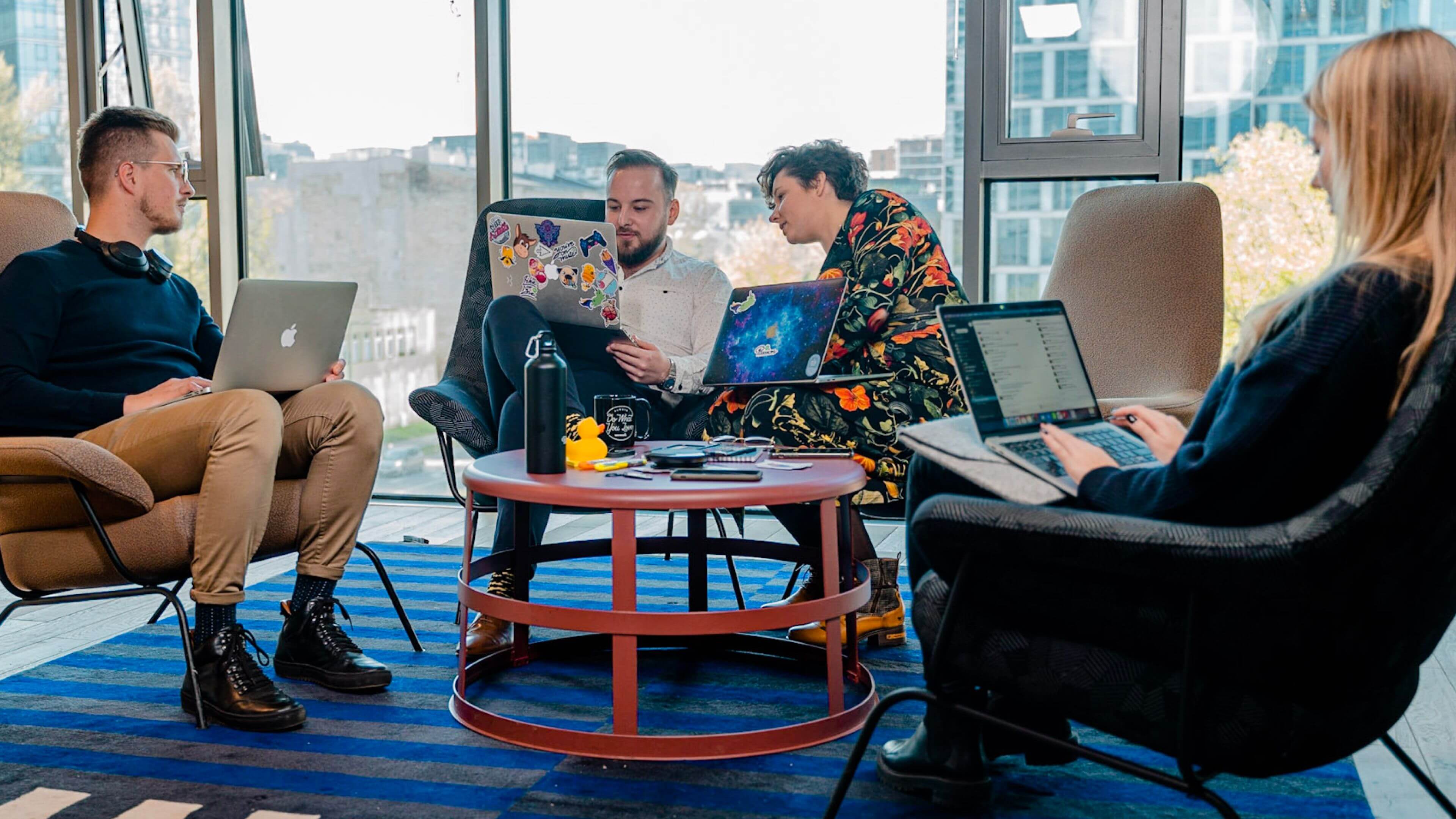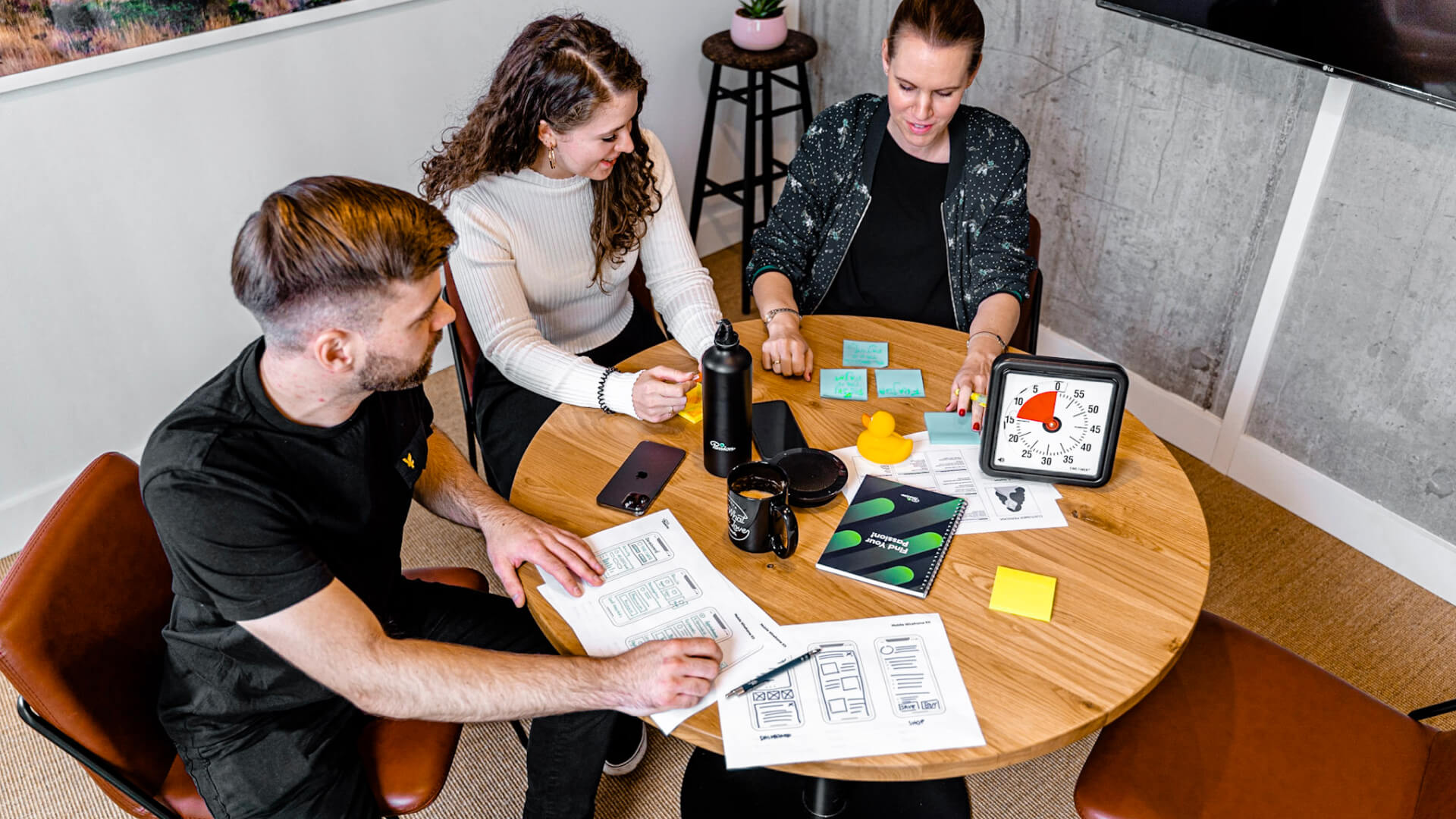6 October 2022 (updated: 6 October 2022)
How We Improved Internal and Cross-Team Communication with Extended DISC
Chapters

To improve internal and cross-team communication, we made DISC one of our priorities for 2022. Learn how and what for, from our one and only HR Business Partner, Zuzanna Kowalska.
![]()
Zuzanna Kowalska is a certified DISC consultant since 2022 and a DISC enthusiast for many years. She has cooperated with numerous DISC consultants and successfully used the assessment in her past workplaces.
Zuzanna was responsible for the DISC implementation at EL Passion: from holding individual sessions with all employees, through conducting workshops, up to 1:1 consultations with Team Leaders about their teams. In HR since 2019, she knew training and workshops was the direction she wanted to pursue. After hours she helps people get their dream job through Dare IT.
Interview with Zuzanna Kowalska, EL Passion's HR Business Partner
Patrycja Paterska: I feel we should start off by explaining what DISC is exactly.
Zuzanna Kowalska: Definitely. DISC is a personal assessment tool that’s supposed to improve teamwork, communication in and outside the teams, and productivity in the workplace in general.
The key here is that every participant is able to generate their own personalized report unveiling not only their preferred styles and forms of communication, but also their motivators, strengths, and in what areas they might want to better themselves.
It Is important to realize that those reports are not to judge you or others. They exist to help you understand how you and others communicate, make interactions more effective, and reduce confusion that might arise when different communication styles clash.
Why do organizations need DISC assessment? What are the benefits?
There’s actually plenty. First of all, when you’re a manager or a team leader you get to know what natural talents people possess, so you are able to better assign people to projects, working groups, and in certain cases, teams. You actually discover when they feel most comfortable, so task distribution is also significantly improved. Seems a bit idealistic when you talk about it, but it works well in practice.
There are people who work well under pressure, and there are those who need to step back for a while to make the right call. Allowing them to use their natural inclinations makes them more confident and motivated, and simply happier at work.
And this is also insanely important in today's job market where you have the Great Resignation happening around the corner, and people strive to work at a place that values them as humans, and not only filled vacancies.
DISC can also be used as a recruitment tool. When you know the team you already have, you know what soft skills it is lacking to move smoothly — so you search for people that would complement their skills.
But DISC is not only beneficial for top-bottom communication. You mentioned it’s supposed to improve communication as a whole at a company.
Exactly, DISC is very helpful for managers as we mentioned, but it’s just one of its core objectives. Thanks to DISC, teammates are able to adjust their communication to one another and understand everyone’s approach better and with more empathy. This adds to the atmosphere naturally and without force simultaneously reducing the risk of miscommunication and conflicts.
It’s a tool that might also boost your confidence, because you know you’re not “worse” than somebody for needing more time or focus to perform a certain task as we might subconsciously think. You’re just built different (and it’s not some coaching, it’s actual facts). You might have different needs, and, when you’re aware of them and they’re met, you’re more likely to reach your full potential, both in a team and as an individual.
 One of the core DISC objectives is to help you understand how you and others communicate.
One of the core DISC objectives is to help you understand how you and others communicate.
At EL Passion we encourage people to use their DISC results to help others communicate with them. That’s actually another crucial element of the DISC assessment. It’s not about having expectations on how people should be communicating with me, but rather what I can do to communicate better with others. If people understand this, a lot of great things can happen in the team.
Communication is crucial for software development teams, especially in the early stage of the project.
Yes. And hence, DISC is one of the tools that helped form and shape our self-managing teams that we introduced in 2021.
In self-managing teams communication is crucial and the practical insights about how you can actually use it is a must, I feel.
DISC emerged as just the perfect solution for it, especially if you count in the remote setting we all operate in on the daily.
There are numerous stages every team has to go through before reaching its full potential. According to Bruce Tuckman these are: forming, when everyone’s on their best behavior, storming, when first conflicts arise, norming, and, at last, performing. DISC can ease out all of those stages, especially the first two, so the team is on the same page quicker. And stays on the same page later.
You were responsible for the DISC implementation at EL Passion. Can you share some insights on that?
Sure, when we started the process of implementing DISC internally, we began with workshops and training of all the managers and C-level executives. Level 2 was conducting similar workshops, but this time with managers and their teams. In some cases we also conducted cross-teams training. We wanted to mingle all the people that work together basically. So it’s not that only a given tech team had a workshop, they had their workshop with their dedicated Agile Project Manager. We also did a joint workshop for our Business Development & Marketing teams. They were of course not the same type of workshops on a granular level, so the exercises differed, but the goal was unchanged: to give everyone the time and the space to get to know one another and to ease their daily communication, and simultaneously, work.
And how is it going? What are the results?
Although we don’t measure DISC implementation results per se, we do see a trend that the work in our self-managing teams goes more smoothly, there are fewer fires and fewer issues of miscommunication.
Our eNPS (employee net promoter score) showing employees’ engagement and organization loyalty went up from 47 to 83 year to year (August 2021 - August 2022). I think the fact that we conducted all these workshops in-person rather than remotely also has a significant impact on everyone’s engagement and approach to one another. It might be great to be a remote-first company, but it’s also good to see the faces you work with from time to time to remind yourself we’re all people, and pretty cool people at that.
Check out also
- Self-managing Teams: Why, What, and How We Do It at EL Passion — Self-managing teams onboard faster, solve issues more quickly, and are more effective in cooperation overall. See why we implemented self-managing teams at EL Passion and what’s in it for your project.
- 6 Things About Our Recruitment Process - Explained by Our HR People Partner, Zuzanna Syrocka — At EL Passion, we’re committed to our recruitment process and want it to be as transparent and seamless as possible for both parties involved.





